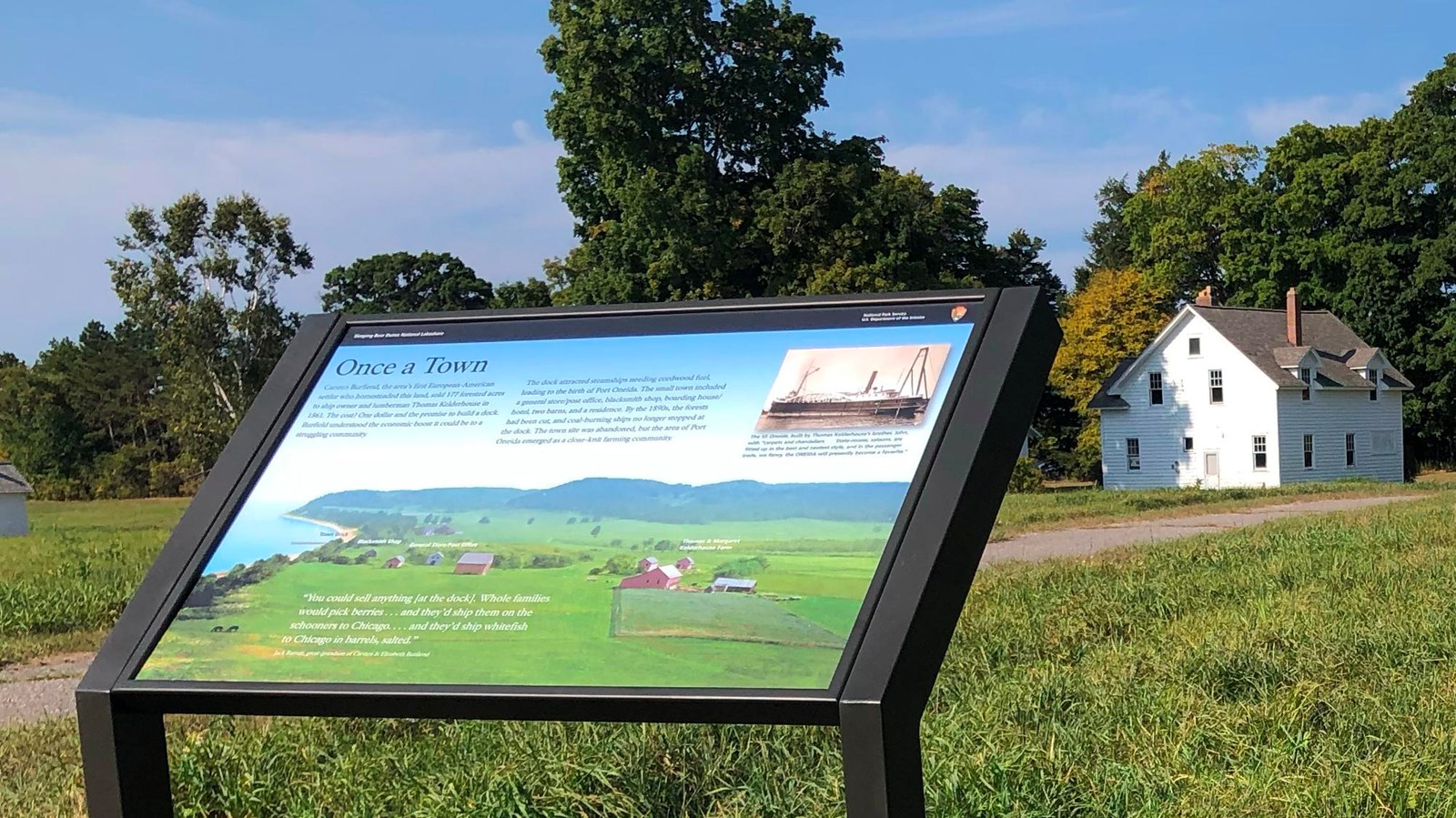Last updated: November 12, 2024
Place
Wayside: Once a Town

Audio Description
Main Exhibit Text
Carsten Burfiend, the area’s first European-American settler who homesteaded this land, sold 177 forested acres to ship owner and lumberman Thomas Kelderhouse in 1861. The cost? One dollar and the promise to build a dock. Burfiend understood the economic boost it could be to a struggling community.
The dock attracted steamships needing cordwood fuel, leading to the birth of Port Oneida. The small town included a general store/post office, blacksmith shop, boarding house/ hotel, two barns, and a residence. By the 1890s, the forests had been cut, and coal-burning ships no longer stopped at the dock. The town site was abandoned, but the area of Port Oneida emerged as a close-knit farming community.
Image Descriptions
Background Image
The background of this exhibit is an image of Port Oneida as it appeared in the mid to late 1800s. The community is viewed from above and looks out over a farm and several buildings. Lake Michigan is visible on the left side and there are green tree-covered hills in the distance. Items labeled in the image include the Town Dock, Blacksmith Shop, General Store/Post Office, and Thomas & Margaret Kelderhouse Farm.
Caption (quote)
“You could sell anything [at the dock]. Whole families would pick berries… and they’d ship them on the schooners to Chicago.… and they’d ship whitefish to Chicago in barrels, salted.” — Jack Barrett, great-grandson of Carsten & Elizabeth Burfiend
Historic Photograph (top right)
In the top right corner of the exhibit is a sepia-colored historic photograph of a large ship. Some people can be seen peering out of an opening on the lower level, while several stand on the ship’s decks.
Caption
The SS Oneida, built by Thomas Kelderhouse’s brother, John, with “carpets and chandeliers . . . State-rooms, saloons, are fitted up in the best and neatest style, and in the passenger trade, we fancy, the ONEIDA will presently become a favorite.”
